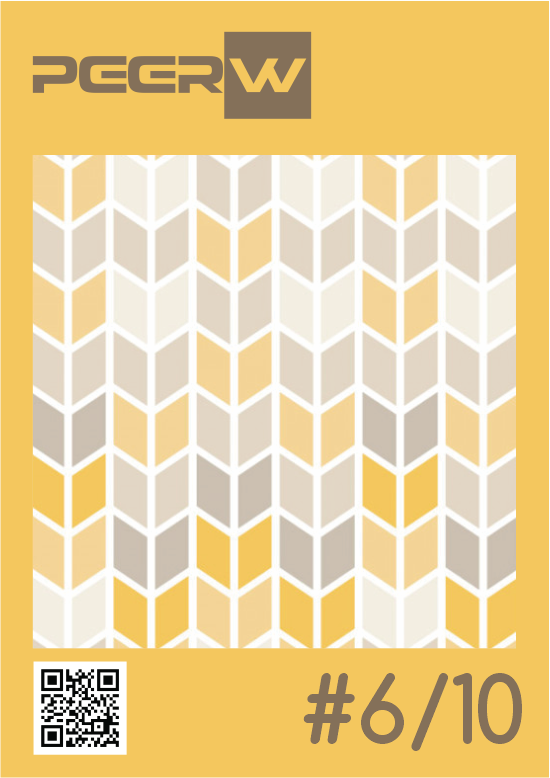Metodologia pedagógica para educação inclusiva aprimorada por tecnologia: estudo de caso de um curso ead de computação e robótica para professores indígenas
DOI:
https://doi.org/10.53660/PRW-2212-4107Palavras-chave:
Metodologia Pedagógica COMP-LETE, Educação Inclusiva, Tecnologia Educacional, Formação de Professores, EtnoinformáticaResumo
Este estudo introduz a Metodologia Pedagógica COMP-LETE, que combina princípios pedagógicos e tecnológicos para fomentar uma aprendizagem inclusiva e significativa. Destaca-se a relevância da educação inclusiva e da incorporação de tecnologias, baseando-se em teorias consolidadas tanto na área educacional quanto tecnológica. São abordados os desafios enfrentados pela Educação a Distância (EaD) na capacitação de professores, como a literacia digital e o acesso à tecnologia. São apresentados resultados positivos da aplicação dessa metodologia em um curso de formação em computação e robótica para professores indígenas, ressaltando o aumento do envolvimento e a colaboração entre os participantes.
Downloads
Referências
AUSUBEL, D. P. Educational psychology: A cognitive view. New York: Holt, Rinehart and Winston, 1968.
BANDEIRA, 2011. O Conceito de Tecnologia Sob o Olhar do Filósofo Álvaro Vieira Pinto.
BATTISTE, Marie. Decolonizing education: nourishing the learning spirit. Saskatoon: Purich Publishing, 2013.
BRANSFORD, J. D.; BROWN, A. L.; COCKING, R. R. (Eds.). How people learn: Brain, mind, experience, and school. Washington, DC: National Academies Press, 2000.
CANDIDO. Pedagogia EAD: Desafios e Vantagens do Ensino a Distância na Formação de Professores. 2024. Disponível em: https://noticias.seg.br/pedagogia-ead-desafios-e-vantagens-do-ensino-a-distancia-na-formacao-de-professores/. Acesso em 22 de fev. de 2023.
CASTAGNO, A. E.; BRAYBOY, B. M. Culturally responsive schooling for Indigenous youth: a review of the literature. Review of Educational Research, v. 78, n. 4, p. 941-993, 2008.
COLLINS, A.; HALVERSON, R. Rethinking education in the age of technology: the digital revolution and schooling in America. New York: Teachers College Press, 2018.
FAUSTO, I. R. de S.; LETA, F. R.; BRAZ, R. M. M. Indigenous Land In The Virtual World: Strengthening Identities Through Minecraft. In: ICERI2023 PROCEEDINGS, 2023, p. 810-818. ISBN: 978-84-09-55942-8. ISSN: 2340-1095. doi: 10.21125/iceri.2023.0286.
FAUSTO, I. R. de S.; LETA, F. R.; BRAZ, R. M. M.; PINTO, S. C. C. da S. Pedagogical Architecture Trail: Virtual Environment of Learning of the Initial and Continuing Training Course in Educational Robotics in Basic Education - Instituto Federal of Education, Science and Technology - RO - IFRO. In: WORKSHOP DE PENSAMENTO COMPUTACIONAL E INCLUSÃO (WPCI), 1. , 2022, Manaus. Anais […]. Porto Alegre: Sociedade Brasileira de Computação, 2022. p. 33-41. DOI:https://doi.org/10.5753/wpci.2022.226756.
FAUSTO, I. R. de S.; LETA, F. R.; BRAZ, R. M. M.; SILVA, L. A. S.; ALMEIDA, E. F. N. The use of Padlet in activities of the Initial and Continuing Education Course in Computing, Technologies, and Educational Robotics for Basic Education in the EAD modality. In: WORKSHOP DE INFORMÁTICA NA ESCOLA (WIE), 2023, Online. Anais […]. 2023.
FAUSTO, I. R. de S.; RODRIGUES, F.; BRAZ, R. M. M. Comunica Tupi - tradutor para língua indígena Tupi Mondé. Caderno Pedagógico, v. 21, n. 1, p. 2912-2927, 2024. Disponível em < https://doi.org/10.54033/cadpedv21n1-156>. Acesso em 22 de fev. de 2024.
FAUSTO, I. R. S. A Infobetização dos Profissionais da Educação para o uso das tecnologias assistivas em sala de aula: Uma Abordagem Formativa. [Dissertação de Mestrado] Programa de Pós-Graduação em Educação Escolar Mestrado e Doutorado Profissional – PPGEEProf. UNIR, 2021.
FAUSTO, I. R. S. Fabiana Rodrigues; BRAZ, Ruth Maria Mariani. (2024). Comunica Tupi - tradutor para língua indígena Tupi Mondé. Caderno Pedagógico, 21 (1), 2912–2927. DOI: 10.54033/cadpedv21n1-156.
FAUSTO, I. R. S. LETA, Fabiana Rodrigues; BRAZ, Ruth Maria Mariani; PINTO, Sérgio Crespo Coelho da Silva. Pedagogical Architecture Trail: Virtual Environment of Learning of the Initial and Continuing Training Course in Educational Robotics in Basic Education - Instituto Federal of Education, Science and Technology - RO - IFRO. In: WORKSHOP DE PENSAMENTO COMPUTACIONAL E INCLUSÃO (WPCI), 1., 2022, Manaus. Anais […]. Porto Alegre: Sociedade Brasileira de Computação, 2022. p. 33-41. DOI: 10.5753/wpci.2022.226756.
FAUSTO, Ilma Rodrigues de Souza; LETA, Fabiana Rodrigues; BRAZ, Ruth Maria Mariani. Trilhando Caminhos Tecnológicos na Educação Indígena: Desafios e Inovações da Etnoinformática Para Uma Aprendizagem Significativa. 1. ed. [S.l.]: [s.n.], 2024. 322 p.
GIOLO, J. A educação a distância e a formação de professores. Educação & Sociedade, v. 29, n. 105, p. 1211-1234, 2008. Disponível em: https://doi.org/10.1590/S0101-73302008000400013. Acesso em 22 de fev. de 2024.
GÖTZKE, Monique. Design Thinking e inovação na educação. São Paulo: Editora Senac São Paulo, 2022.
KRESS, G. Multimodality: A social semiotic approach to contemporary communication. London: Routledge, 2010.
LAURILLARD, D. Rethinking university teaching: A conversational framework for the effective use of learning technologies. London: Routledge, 2002.
MARTINS, S. W.; MARTINS, J. W.; ALVES, F. M. M. Literacia digital como competência para a cidadania global. In: Informática na Educação. Série de livros-texto da CEIE-SBC. Disponível em: https://ieducacao.ceie-br.org/literaciadigital/. Acesso em: 22 jan. 2023.
OLIVEIRA, M. C. de. Os Desafios Contemporâneos da Educação à Distância para a Formação de Professores. RACE - Revista De Administração Do Cesmac, v. 10, p. 151-158, 2021. Disponível em: https://revistas.cesmac.edu.br/administracao/article/view/1424. Acesso em 22 de fev. de 2024.
PAIS, J. M. et al. Educação, cultura e sociedade: diálogos interdisciplinares. Porto: Porto Editora, 2023.
PEDROSA, R.; ISOBE, C. Educação indígena e formação de professores. Campinas: Autores Associados, 2017.
REIS; AMBROZIO; MACHADO. Uma análise da relação entre tecnologia no local de trabalho e rendimentos no Brasil. 2011.
SMITH, L. T. Decolonizing methodologies: research and Indigenous peoples. New York: Zed Books, 2012.
UNESCO. Declaração dos Objetivos de Desenvolvimento do Milênio (ODM). Paris, 2000. Acesso em: 10 out. 2023.
UNESCO. Digital literacy in education. Policy brief. Institute for Information Technologies in Education, Paris, 2011. Acesso em: 10 out. 2023.
UNESCO. Padrões de competência em TIC para professores. Paris, 2009. Acesso em: 16 jul. 2017.
UNESCO. Teacher Training Curricula For Media and Information Literacy. Report of the International Expert Group Meeting UNESCO House, Drafted by Penny Moore Paris, Paris, 16-18 June 2008. Acesso em: 16 jul. 2023.
VYGOTSKY, L. S. Mind in society: The development of higher psychological processes. Cambridge: Harvard University Press, 1978.
WENGER, E. Communities of practice: Learning, meaning, and identity. Cambridge: Cambridge University Press, 1998.




